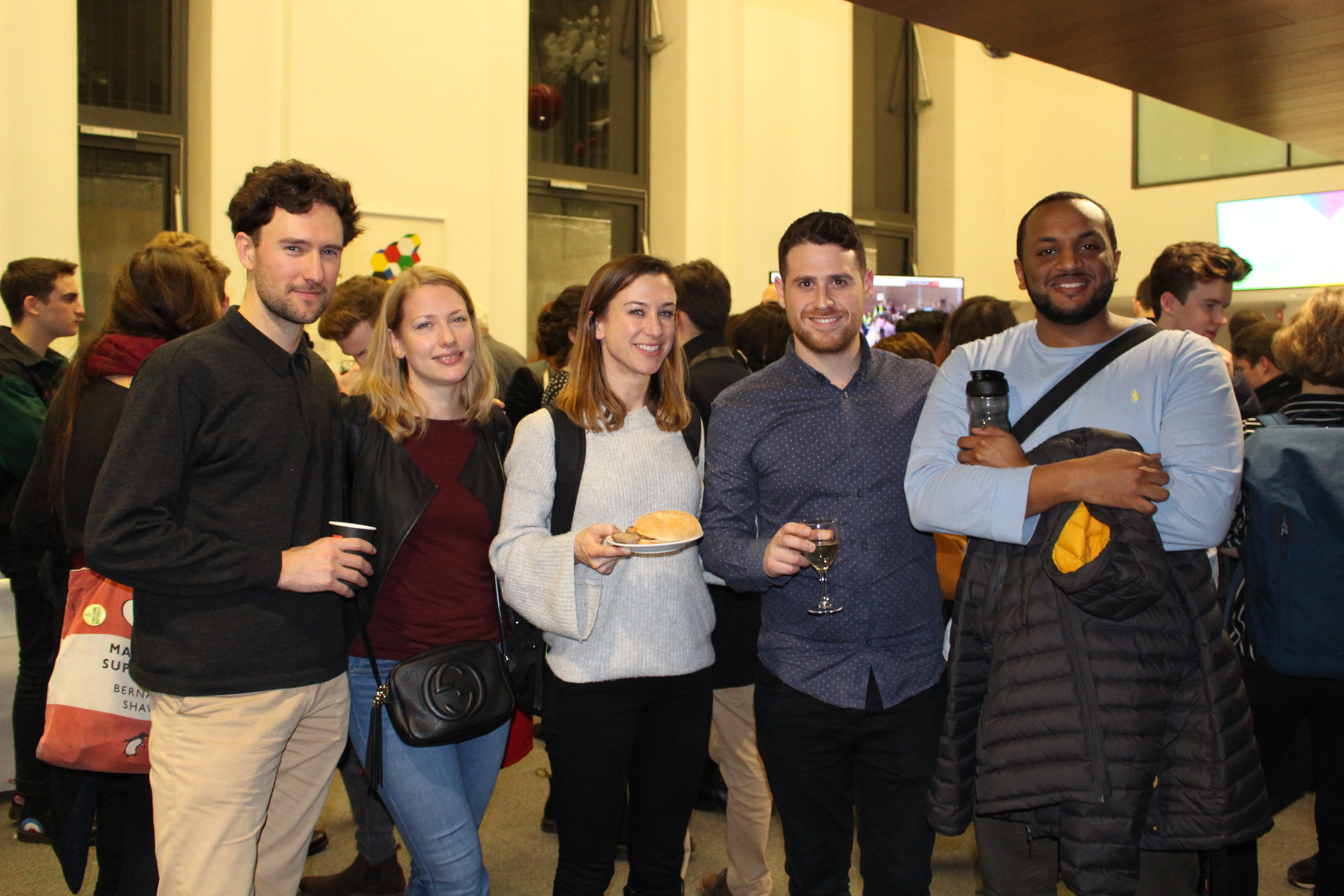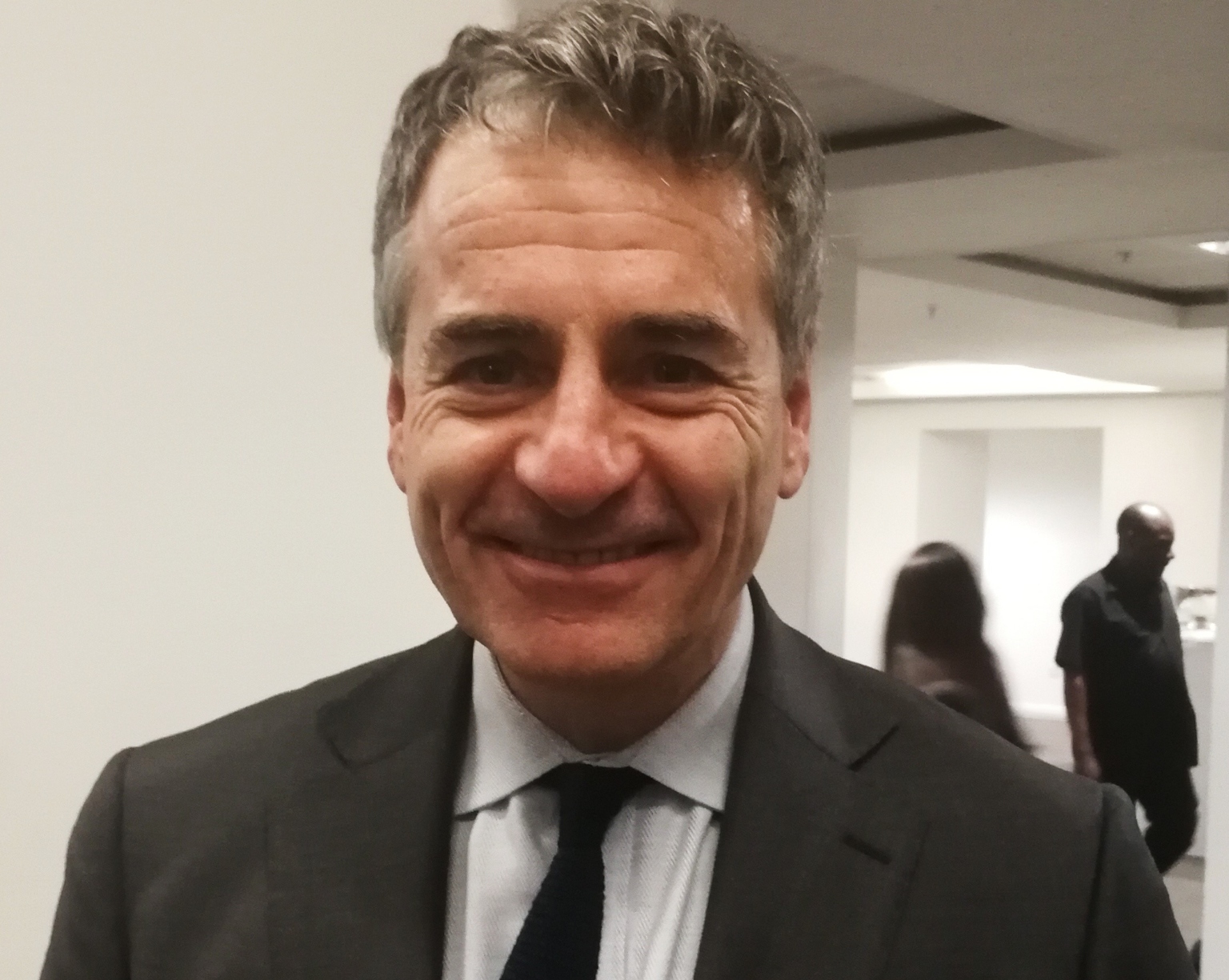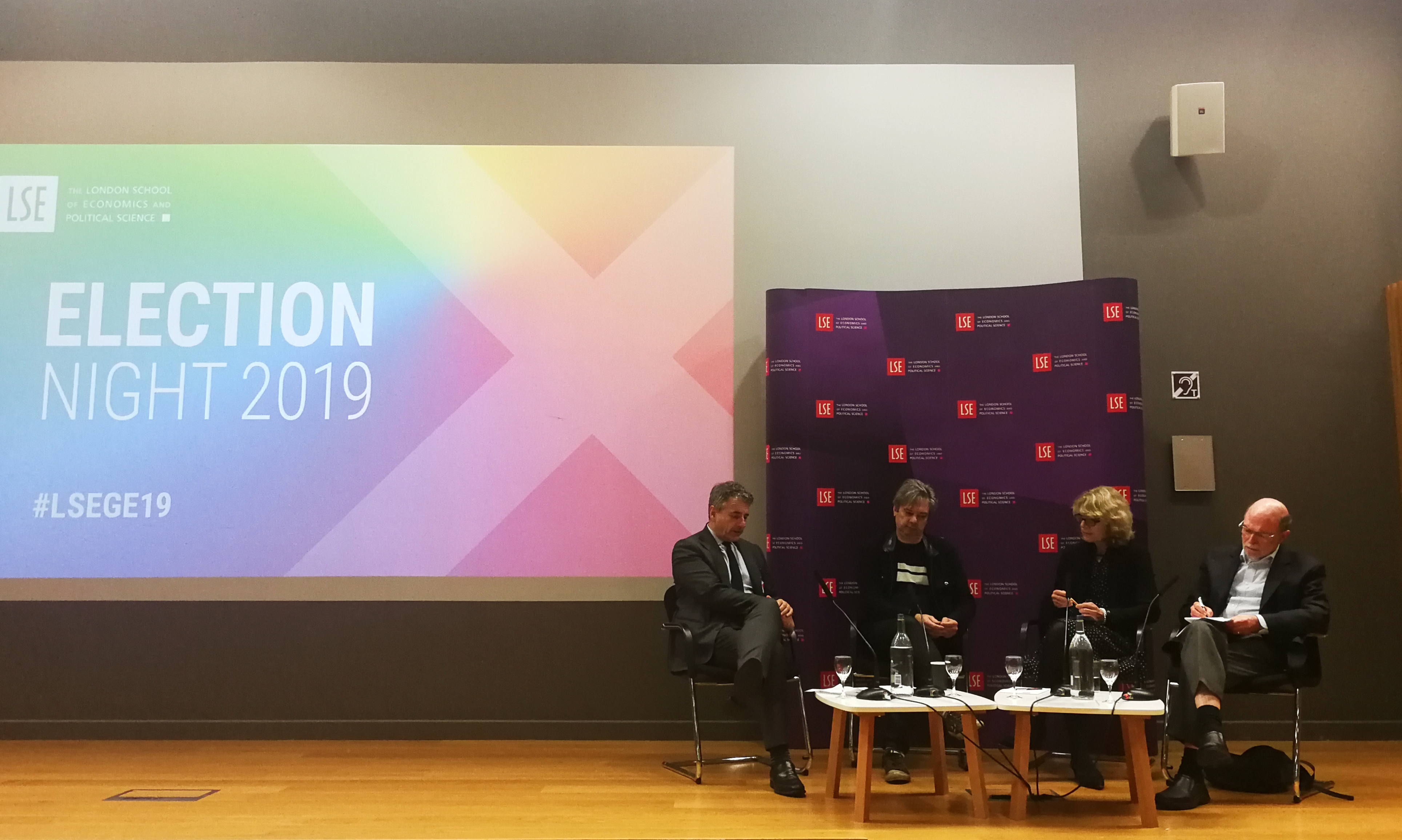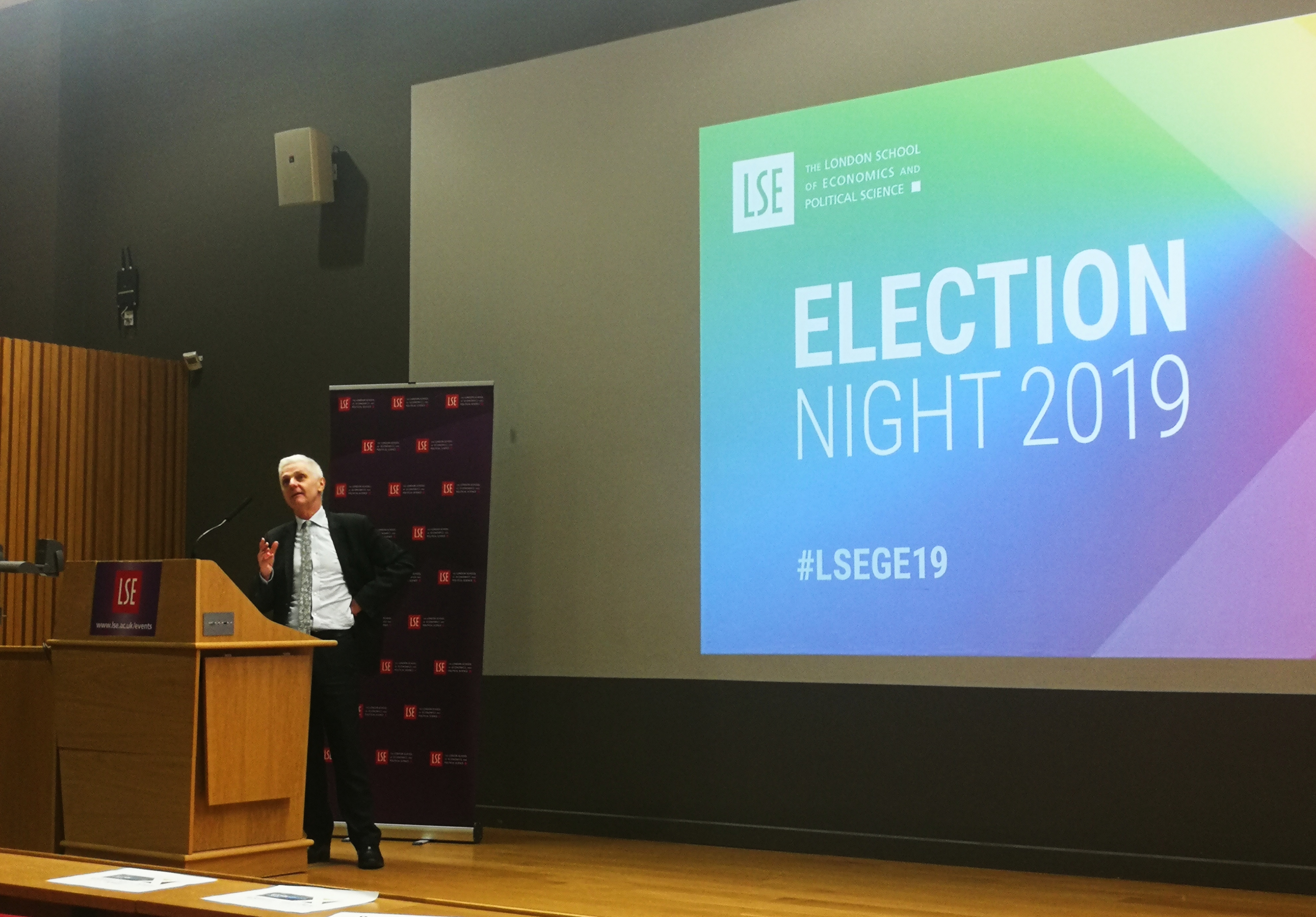The night wholly kicked off with the release of the exit poll at 22:00 GMT, where a full Sheikh Zayed Theatre reacted with a mix of joy and misery at the predictions.
Following this, a continuous stream of expert panellists discussed a whole range of implications for the UK and its relations with the world going forward, as well as commenting on issue areas the election campaign neglected.
We caught up with individuals throughout the night.
MPP student Henry argued argues there are two ways of interpreting the outcome of the exit poll. First, as an endorsement of Brexit. Second, as a rejection of Jeremy Corbyn's policies (adding that it will be hard to disentangle the link between Corbyn & Labour's policies).
Henry also suggested the outcome gives PM Boris Johnson a clean mandate to reject everything the Labour Party ran on the basis of, and to pursue whatever he wants on Brexit. To him, both of these mean bad news for people who stand behind a progressive agenda.

MPP students
SPP Academic Director Prof Sara Hagemann argued the election result might not be unwelcome in Europe. It has significant consequences for the Brexit we have because the EU now know what government they're dealing with.

Professor Sara Hagemann
Prof Nicholas Barr, Professor of Public Economics at the LSE European Institute, responded to the question: "Does lying on the campaign trail matter?"
He answered: The exit poll results prove we need to regulate social media. If democracy is to continue being viable, people need to be able to believe what they're told.

Professor Nicholas Barr
Dean of the SPP Prof Andrés Velasco responded to the question: "If you were to add one issue to the election discussion that was missed, what would it be?"
He responded: Given the amount of technological change, and change in the world economy, any future growth in the UK will require a "reskilling" to an extent that no candidate or party was talking about. This is important for reasons of growth, employment and social equity. It is shocking how absent this was in this election.

Professor Andrés Velasco
Panel 5 of the night was titled "Economy and Welfare". Prof Velasco argued, using his experience with trade agreements in Chile, the perceived idea of jumping out of the EU and quickly into a set of trade agreements with the rest of the world is unlikely.

Panel 5, with Professor Andres Velasco, Professor Stephen Machin, Vicky Pryce and Professor Nicholas Barr.
Vicky Pryce, Chief Economic Advisor at CEBR, further made the point that there has been a move away from evidence; evidence-based policy has been thrown out of the window.

Concluding remarks by Professor Tony Travers
Final remarks were given by Professor Tony Travers, who concluded the First Past the Post voting system, and the UK's two-party system, is here to stay.
If you are interested in revisiting moments from the election night, visit our Twitter (@LSEPublicPolicy).